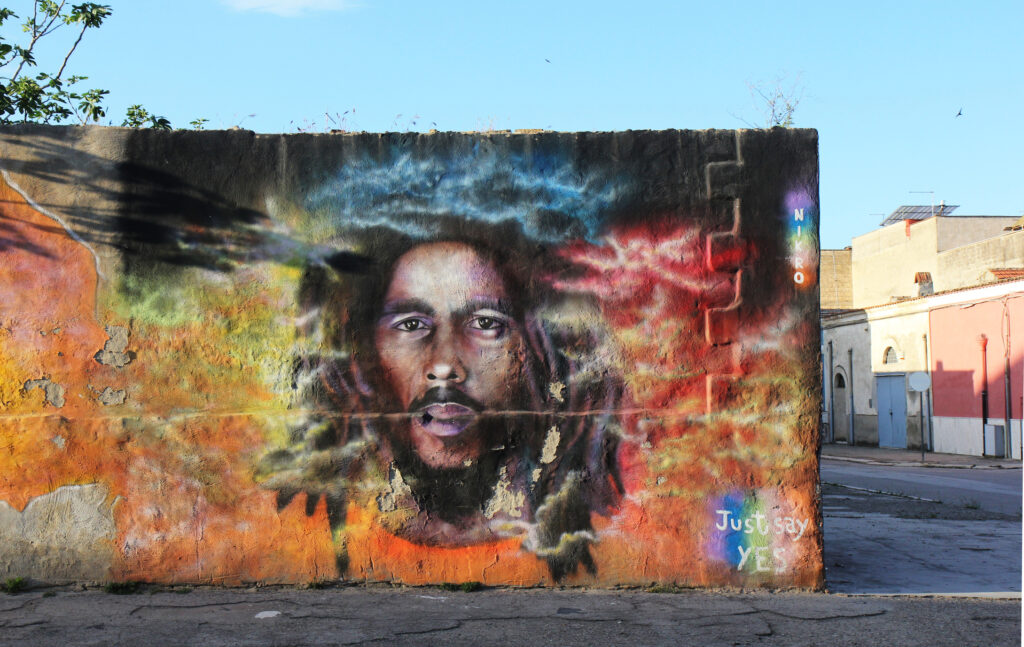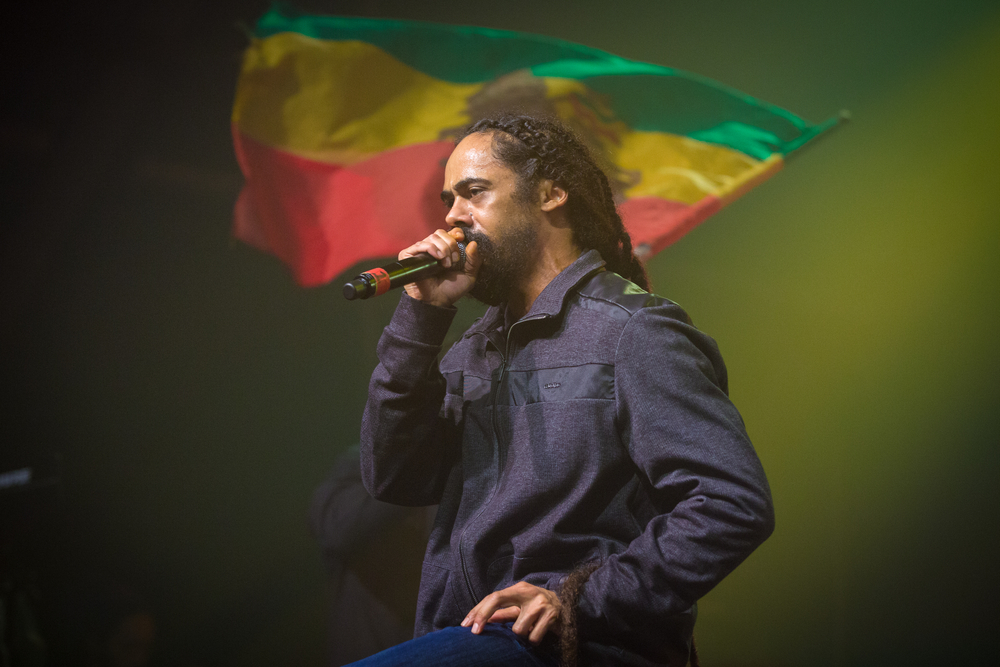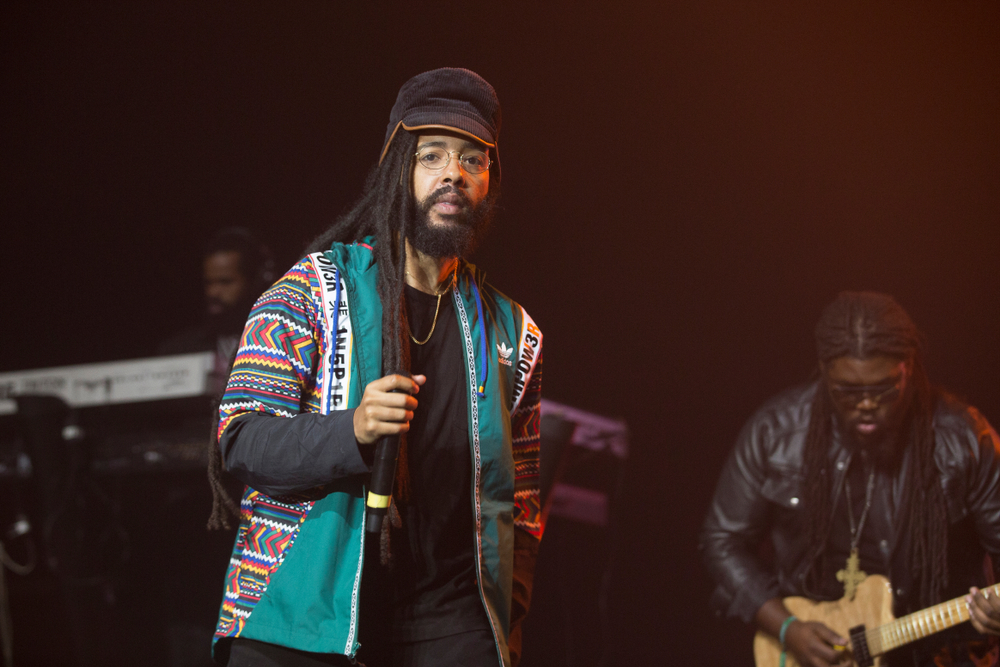Reggae music in the Caribbean
Reggae music in the Caribbean
Reggae isn’t just a genre—it’s a cultural force. Born in the backstreets of Kingston, Jamaica, in the late 1960s, it grew from the laid-back grooves of ska and rocksteady into a sound that carried the weight of history. With its deep basslines, offbeat guitar strokes, and socially charged lyrics, reggae became the voice of the people—protesting oppression, celebrating resilience, and spreading messages of unity.
Bob Marley took it global, turning songs like Get Up, Stand Up and No Woman, No Cry into anthems of struggle and hope.
 But he wasn’t alone. Peter Tosh brought militant fire, Burning Spear channeled the spirit of Rastafari, and Toots Hibbert’s soulful wail made reggae impossible to ignore. From the streets of Kingston to dancehalls in London and beyond, reggae became the heartbeat of the Caribbean—and the soundtrack of resistance.
But he wasn’t alone. Peter Tosh brought militant fire, Burning Spear channeled the spirit of Rastafari, and Toots Hibbert’s soulful wail made reggae impossible to ignore. From the streets of Kingston to dancehalls in London and beyond, reggae became the heartbeat of the Caribbean—and the soundtrack of resistance.
But reggae never stayed static—it morphed. The ‘80s and ‘90s saw the rise of dancehall, a digitalized, high-energy offshoot that took the Caribbean by storm, with artists like Shabba Ranks and Buju Banton reworking reggae’s DNA. Today, the roots still run deep. The new wave of reggae artists blends tradition with innovation, keeping the genre fresh while staying true to its essence. Damian Marley, Protoje, and Chronixx are leading the charge, infusing roots reggae with hip-hop and contemporary sounds. These are the influential artists today, proving that reggae remains as vital as ever—one bassline at a time.
Ziggy Marley has spent a lifetime walking the line between legacy and evolution. As the eldest son of reggae icon Bob Marley, he could have coasted on name recognition alone. Instead, he’s built a career that honors his father’s spirit while forging his own path, blending roots reggae with pop, rock, and global influences. His music is as much about escape as it is about introspection, with tracks that transport listeners while staying grounded in deeper truths.
Take Beach in Hawaii, a dreamy, sun-drenched anthem of longing. Over a breezy acoustic riff, Ziggy sings of missing someone across the ocean, his voice drifting between serenity and sorrow. Then there’s Dreams of Home, a soul-searching meditation on belonging, carrying echoes of exile and the pull of one’s roots. Both songs showcase Ziggy’s ability to balance light and depth—an artist equally at ease singing about coastal beauty and life’s heavier realities.
Stephen Marley isn’t just carrying on a legacy—he’s reinventing it. As the second son of Bob Marley, he could have easily ridden on name recognition alone, but instead, he’s spent decades shaping the sound of modern reggae from behind the scenes and in the spotlight. A producer, singer, and songwriter with a deep respect for tradition and an ear for innovation, Stephen has crafted a career that fuses roots reggae with hip-hop, blues, and soul, pushing the genre into new territory.
He first emerged as a member of the Melody Makers, the family band led by Ziggy Marley, but his solo career proved he was more than just a supporting player. His 2007 debut Mind Control was a masterclass in reggae fusion, earning him a Grammy and cementing his status as a force in his own right. Songs like Chase Dem captured his militant spirit, calling out corruption over hypnotic rhythms, while Made in Africa is a powerful anthem that traces reggae’s deep-rooted connection to the continent.
Damian “Jr. Gong” Marley is a bridge between reggae’s rich past and its dynamic future. The youngest son of Bob Marley, Damian has carved out his own distinct voice in the genre while honoring the legacy that came before him. Known for his socially conscious lyrics and genre-blending sound, Damian’s music blends reggae, hip-hop, and dancehall into a unique fusion that has captivated global audiences.

His 2005 album Welcome to Jamrock was a defining moment in his career, propelling him into the international spotlight with its infectious title track. The song, which blends roots reggae with a gritty dancehall edge, became an anthem for a new generation of listeners, while its message of resistance and social justice resonated worldwide. The album’s success earned Damian several Grammy Awards and firmly established him as a formidable artist in his own right.
Anthony B doesn’t just make music—he delivers messages. For nearly three decades, the Jamaican artist has been a steady force in reggae, spitting socially charged lyrics with the passion of a street preacher and the energy of a dancehall star.
Born Keith Blair in 1976, Anthony B came up in the ‘90s alongside heavyweights like Sizzla and Capleton, but he quickly established himself as a distinct voice in the roots revival movement. His 1996 breakout album, Real Revolutionary, was more than a debut—it was a statement of intent. Tracks like Raid the Barn and Fire Pon Rome cemented his reputation as a bold artist, unafraid to challenge the establishment while keeping the dancehall moving.
Decades later, Anthony B is still pushing the boundaries of reggae. His latest single, Chill Out, is a high-energy anthem that fuses his signature intense delivery with a propulsive beat.
With his blend of classic roots sound and modern production, Chronixx has become the face of reggae’s new wave, bringing a sound that’s both nostalgic and forward-thinking. Born Jamar McNaughton in 1992, Chronixx emerged from the vibrant Jamaican music scene in the early 2010s, quickly earning a reputation as one of the genre’s most vital voices.
His breakthrough came in 2013 with the release of Xodus, a mixtape that showcased his effortless flow and socially conscious lyrics. Tracks like Smile Jamaica and Here Comes Trouble were immediate anthems, not just for reggae heads but for a whole new generation of listeners. Chronixx’s fusion of old-school reggae with hip-hop influences felt both timeless and contemporary, capturing the essence of reggae’s rebellious roots while adding a fresh, global appeal.
By the time his debut studio album, Chronology, dropped in 2017, Chronixx had solidified his place as one of reggae’s most exciting figures. The album, which included hits like Skankin’ Sweet and Legend, was an ode to reggae’s past while pushing the genre forward. His seamless blend of socially conscious lyrics, rich melodies, and sharp hooks make him one of the genre’s most dynamic artists.
Protoje
Reggae has always been about evolution, and few artists embody that spirit like Protoje. A cornerstone of Jamaica’s modern roots movement, he’s a revolutionary in a tam, blending the conscious lyricism of Bob Marley with the swagger of a hip-hop MC. Over the past decade, he’s redefined the genre’s boundaries, infusing reggae with elements of rap, jazz, and R&B—without ever losing the spiritual weight of the music’s message.

Born Oje Ken Ollivierre in 1981, Protoje grew up surrounded by music—his mother, Lorna Bennett, had a hit in the ‘70s with Breakfast in Bed, while his father was a calypso singer. But rather than ride on legacy, Protoje built his own lane, one rooted in sharp lyricism and an ear for hypnotic grooves. He first made waves with 2011’s The Seven Year Itch, introducing a style that was both deeply traditional and refreshingly new.
His breakout moment came with Ancient Future (2015), an album that signaled reggae’s resurgence in the streaming age. Songs like Who Knows, featuring Chronixx, became instant classics, bridging the gap between roots reggae and contemporary production.
The track’s dreamy instrumentation and effortless harmonies made it a global anthem. From there, he kept pushing boundaries. A Matter of Time (2018) was Grammy-nominated, blending dub, hip-hop, and rock into a seamless, cinematic experience. By the time In Search of Lost Time (2020) dropped—with features from Wiz Khalifa and Popcaan—Protoje had made it clear: reggae’s new school wasn’t just a movement, it was a transformation.
That momentum continues with Where We Come From, his 2024 collaboration with rising star Jahshii. The track is a fiery meditation on struggle and perseverance, carried by Protoje’s smooth delivery and Jahshii’s raw energy. Over a brooding, bass-heavy beat, they trade verses that reflect on their journeys—where they started, what they’ve endured, and where they’re headed.
Lyrically, Protoje is as sharp as they come, weaving political commentary with introspective storytelling. Whether he’s addressing social injustice, personal struggles, or the ever-changing landscape of Jamaica, his words hit with the weight of a sermon. But what sets him apart is his ability to keep it fresh—his music is just as suited for deep reflection as it is for lighting up a festival crowd.
Collie Buddz is reggae’s unsung powerhouse—the Bermuda-born artist who’s spent the past two decades crafting island anthems with a hip-hop swagger. With his signature nasal twang and airtight melodies, he’s one of the few voices that can slide seamlessly between Kingston dancehalls and California’s weed-scented reggae scene. He’s got the credibility of a street-tested sound system DJ and the hooks of a Top 40 hitmaker, making him a fixture on playlists from Montego Bay to Miami.
Buddz broke out in 2007 with Come Around, a bass-heavy ganja anthem that still rattles trunks from Brooklyn to Brixton. The track was a slow-burn smash, earning spins from sound system legends like David Rodigan. His self-titled debut album cemented his status as more than a one-hit wonder, fusing dancehall, lovers’ rock, and hip-hop in a way that felt effortlessly modern.
But Buddz isn’t just another reggae artist pushing nostalgia. His catalog is proof of his evolution—albums like Good Life (2017) and Hybrid (2019) lean into dancehall, soca, and Afrobeats without losing their laid-back island charm. He’s worked with everyone from Snoop Dogg to Bounty Killer, proving that his sound transcends borders.
In an era when reggae purists debate the genre’s future, Collie Buddz is proof that the music is alive and well. He’s not rewriting the rulebook—he’s just making sure the vibes never fade. Whether it’s a sun-soaked festival set or a club rattling with bass, one thing’s certain: when Buddz comes around, you’re gonna feel it.